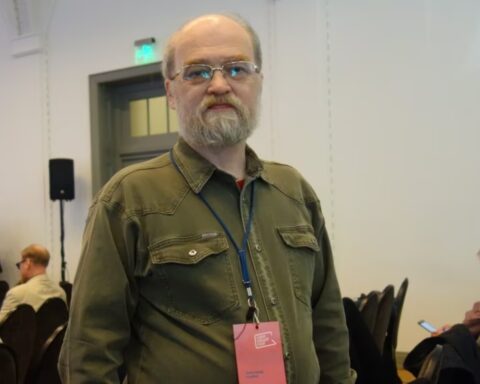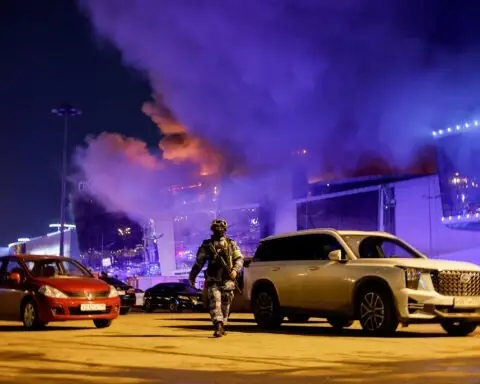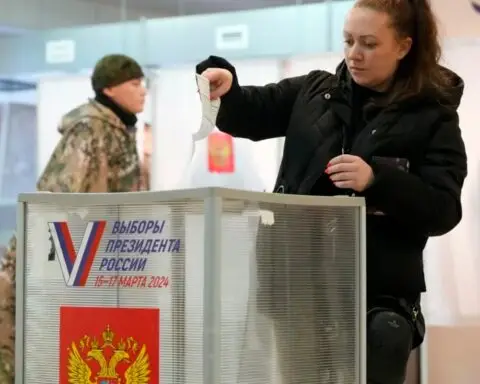For more than a decade, and even since his jailing over three years ago, Aleksei Navalny has been a crucial driver of Kremlin policy – an uncompromising opponent whose vision for a different Russia has been a chief target of President Vladimir Putin’s ever-increasing efforts to quash protests, stamp out dissent, and tightly control politics across the country.
Reports of Navalny’s death come as Putin’s Russia continues to take shape as a place where independent voices are not tolerated, elections are closely managed to avoid even the impression of an alternative, and the country is two years into a full-scale invasion that has cast a massive shadow of death and destruction over Ukraine and had long-lasting effects at home.
Would the demise of the Kremlin’s most vocal critic change any of this – and in what way? Could it bring any hint of the change Navalny has advocated, or just a further tightening of the screws?
The first thing to watch is the campaign for the March 15-17 presidential election, now just one month away. Given the state’s tight grip on politics and the media, Putin is certain to win barring a major unexpected development — but analysts say the Kremlin wants him to win by a margin that demonstrates to Russians, and to the world, that there is no alternative.
That apparent desire seemed all the more evident when Boris Nadezhdin, the only would-be candidate who is a critic of the war against Ukraine, was barred from the ballot this month – after long lines of Russians showed up to support his signature-gathering campaign, possibly spooking Putin and the Kremlin with the prospect that a challenger could gain a substantial chunk of votes.
Navalny, who himself was prohibited from challenging Putin in the last election, in 2018, voiced support last week for an initiative calling on Russians to show up at their polling places at 12 p.m. on the last day of the upcoming vote — a protest effort dubbed Noon Against Putin.
Amid widespread suspicions of foul play – or the pernicious effects of prison conditions and harsh treatment that Navalny said was aimed to kill him — several analysts and Kremlin critics linked his reported death directly to the election in which Putin, who has been president or prime minister since 1999, is set to secure a new six-year term.
“On Tuesday I heard an audio recording of his voice from one of the many court hearings that he has participated in. It was the voice of a cheerful, energetic, healthy man,” political scientist Yekaterina Shulman told Deutsche Welle. “This means that he was killed. He was killed so that he would not interfere with the election campaign. This is what sits on the surface and what cannot be ignored. “
Mikhail Khodorkovsky, the exiled former oil tycoon who spent a decade in prison following convictions that he and supporters say were part of a Kremlin-orchestrated campaign to punish him for venturing into opposition politics and to bring his company’s assets into state hands, urged Russians to write Navalny’s name on their ballots when they vote.
But any such effort – let alone street protests over the election, Navalny’s fate, or the war against Ukraine – is a major risk for Russians who join it.
“On the one hand, people will now have even less desire to vote for Putin; on the other hand, actively acting against [the election] will become even more frightening,” political analyst Abbas Gallyamov wrote on Telegram.
“An optimistic view is that Navalny’s death may inject a new life into Nadezhdin…and give birth to a real movement. A pessimistic view would see Nadezhdin being silenced, either out of fear or [by] more radical and potentially permanent methods,” said Samantha de Bendern, an associate fellow at the British think tank Chatham House.
In fact, the death of a man who symbolized opposition to the noncompetitive elections held under Putin might only serve to enhance the risk of protesting over the election – or anything else.
“At one point, Navalny was useful to Russia as a sign that opposition to Putin was tolerated. That usefulness came to an end long ago,” said Keir Giles, senior consulting fellow at Chatham House. “And by now, Russia has abandoned any pretense that it is anything other than a repressive regime. Russia is back in its historical comfort zone of murdering opponents at home and abroad without qualms and without a care for international condemnation.”
Navalny became a vocal critic of Russia’s war against Ukraine, and his reported death seems unlikely to have any effect on the Kremlin’s pursuit of its goals in the invasion. But reverberations abroad could play into the crucial issue of Western support for Ukraine’s defense, amplifying calls for additional pressure on Russia and potentially affecting the fate of a $60 billion U.S. package of mostly military aid that has been stymied in Congress for months.
Whatever the cause of Navalny’s reported death, it poses a challenge for Putin and the state, according to Tatyana Stanovaya, an expert on the Kremlin and an analyst at the Carnegie Russia Eurasia Center.
“Navalny emerged as a seminal and historical figure, embodying an unyielding anti-Putin political stance and representing the most substantial alternative to Putin’s regime since 2000. His unmatched recognition, significance to the elites, and involvement in domestic politics distinguished him from any other opposition figure, cementing his status as an outstanding politician,” Stanovaya wrote on Twitter. “And this creates a significant political problem for the regime — they will have to deal with Navalny’s legacy.”
But the way the Kremlin will try to address this challenge is not hard to predict, she added.
“I have no doubt that very soon we’ll witness a significant wave of anti-Navalny repressions, raids after indignations in social networks, criminal cases and arrests,” she said.
Numerous observers made clear that whether or not the death of Navalny would bring any change, it would be one the darkest signs of a dark time.
“Navalny was fighting for a ‘beautiful Russia of the future’ and was crushed by the terrible Russia of the past & present. A future for this Russia exists for one man only – Putin,” said Alena Epifanova, a research fellow at the German Council on Foreign Relations. “He is ready to kill anyone who stands in his way. Today he proved it again.”





